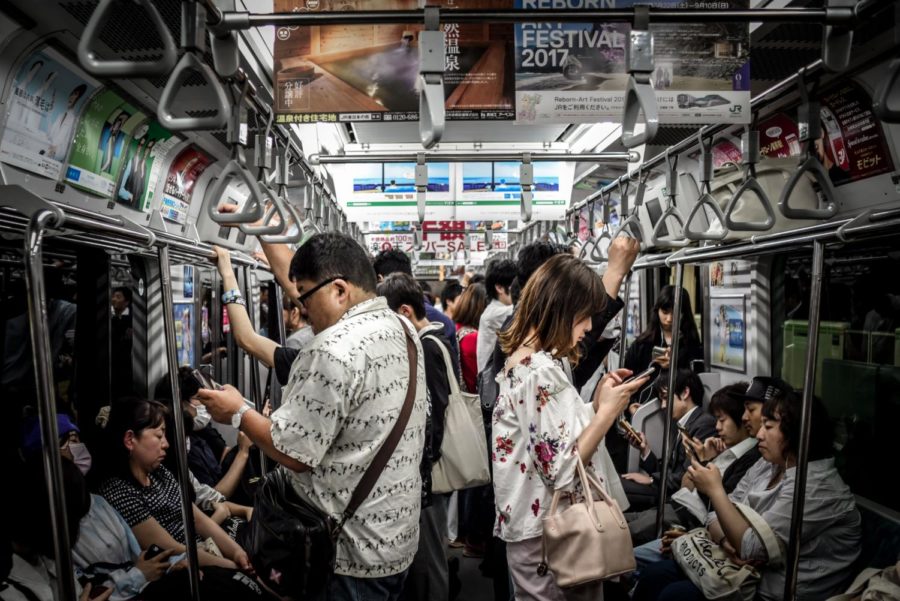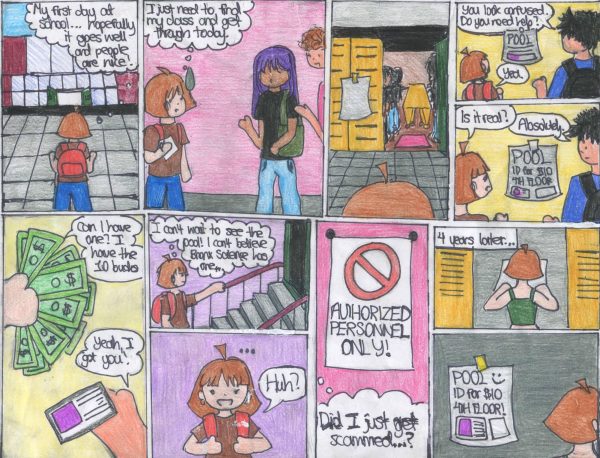Social Media Can No Longer Be Journalism’s Foe
The presence of social media is unavoidable in today’s day and age — that’s why we must figure out a way to make it a safe, productive place for journalists and for the journalism industry.
“Information that is useful and relevant to readers, tends to come from trusted messengers in the community. The more that you erode people’s ability to access those trusted messengers, the more that you stop incentivizing trusted journalists to do local reporting. You create vacuums for any citizen to do that reporting,” said Niko Perez, Program Manager for PEN America.
On a Zoom call in September 2022 with Art Cullen, the owner and editor of the Pulitzer Award-winning Storm Lake Times, Cullen continuously expounded on how detrimental social media is to the journalism industry, how social media is the bane of journalism’s existence, and how it is nothing but a threat to trustworthy reporting. While that may be true now, it doesn’t have to be in the future.
The ubiquity of social media is a fact of life. Its role in society, especially in relation to how it spreads news, will only become more potent as younger generations who have grown up using social media become news consumers on these platforms. Because of this, we can’t simply label social media as an enemy of journalism and wail. There are positives – it allows for access to multitudes of perspectives compared to print papers that could project partisan views. We must engineer ways for social media and trustworthy journalism to coexist, and hopefully find ways for social media to even help the journalism industry.
Social media’s prevalence in the news-consumption sector is partly due to the local news crisis that has led to consumers in news deserts (communities where their local news sources have shuttered and no longer covered by any media) turning towards social media to hear their voices and make them heard.
“When you don’t have local reporting, you’re going to turn to reporting that’s being created and published by larger media organizations, but also people will turn more towards social media to gather local insights of what is happening,” said Niko Perez, the Program Manager for Free Expression and Education at PEN America, whom I reached out to for an interview.
The issue is, though, the overwhelming presence of social media in our modern world creates many problems for journalism as an industry, and journalists as individuals. One major issue that social media poses is that it creates an easy apparatus for people to commit online abuse. According to a study done by the Pew Research Center, 72% of journalists who experienced harassment in the past year report that it happened on social media. Additionally, online abuse is often disproportionately targeted towards women journalists, LGBTQ+ journalists, journalists of color, and journalists of religious or ethnic minorities. Online abuse is not just harmful towards the target of abuse, but for news and discourse at large because it disincentives people from sharing their viewpoints.
Another pervasive threat that social media poses to the journalism industry is the proliferation of fraudulent news through social media sites. This doesn’t just look like blaring false headlines such as “The 2020 Election was Stolen” or “Evidence Surfaces That The FBI Planned And Executed January 6 Capitol Riot,” because that would be unfathomable, right…right? The truth is fraudulent news takes on many forms. “If you don’t have professional journalists reporting in these local spaces, they could get filled by private citizens online, and private citizens online aren’t necessarily trained to report,” said Perez.
“If public discourse becomes so flooded with disinformation that listeners can no longer distinguish signal from noise, they will tune out,” wrote Suzanne Nossel, the CEO of PEN America, for Foreign Policy. We can’t have news-consumers tune out. This will lead to the most daunting threat: a recession in democratic participation. A lack of accurate information undermines the fundamental democratic premise of informed voting, and winds up discouraging participation.
However, social media’s dominant role in society makes it a necessary tool for journalists to use. In essence, it’s unavoidable. But if social media creates all these problems for journalism as an industry, yet it’s so prevalent in society, how can it be a positive force rather than a damaging one?
The answer is to solve the local news crisis at its heart in order to restore journalism as an industry.
“There’s a lot of actors that go into this — all levels of government, the social media companies themselves, the philanthropic sector, and large media conglomerates,” said Perez. PEN America’s ‘Losing the News’ report outlines how all of these actors can take significant action towards solving the local news crisis.
Currently, only a small portion of philanthropic funding that goes towards journalism goes towards small local news sources. Even further, this funding is concentrated on the coasts, leaving behind any smaller or mid-size media outlets that aren’t household names. This funding from the philanthropic sector must be increased, and it must be going towards the restoration of local news sources all across the country. “Foundations and nonprofits need to recognize how much our democracy is put at risk by the closing of local news,” said Perez.
In addition, legislators and regulators must ensure that technology companies are fairly compensating local outlets for the journalism they produce. The shift from printed newspaper to digital newspapers has allowed tech giants, such as Google and Facebook, to funnel the majority of ad revenue that is generated on their sites that is paid for and produced by news outlets. If legislators and regulators can hold technology companies accountable, and if the Federal Communications Commision rolls back their conditions that allow this media consolidation to happen in the first place, the internet and social media will be a much more lucrative place for local journalism.
Already, we can see that social media isn’t all bad news for journalists. According to the Pew study, over 75% of journalists interviewed said that social media has had a positive effect on helping to promote their stories, connecting with their audience, finding sources, and identifying stories to cover.
Social media can also allow an individual to become more engaged with current events and journalism. “There is a democratizing power in that everybody becomes a journalist in a way,” said Perez, “The average citizen participates in the journalistic process by seeing something and reporting on it.”
Further, organizations in conjunction with PEN America have designed algorithm technology to address harassment issues on social media. They’ve innovated a shield that automatically detects and isolates toxic or threatening content and posts it on a dashboard, where users can choose how to handle it, by either ignoring, blocking or reporting.
“The goal was to provide technology companies a blueprint of tools and features they can and should build ASAP to combat online abuse and empower targeted users. This report is the first to look at online harassment from the standpoint of user experience and product design and ask, ‘What can platforms do now to protect and support people facing abuse?’” asked Viktorya Vilk, PEN America’s program director for digital safety and free expression in an interview.
The work that we must put into making social media a more compatible place for trustworthy journalism is daunting. Solve the local news crisis — easy right? But while it may seem hard, it’s not impossible. In some regards, it’s already happening, and we must push the government, philanthropists, and technology companies to institute reforms that will return integrity to local reporting, and thus, make social media a safer place for journalism.
“There is a democratizing power in that everybody becomes a journalist in a way,” said Niko Perez, the Program Manager for Free Expression and Education at PEN America. “The average citizen participates in the journalistic process by seeing something and reporting on it.”
Helen Stone is the Editor in Chief and Facebook Editor for 'The Science Survey.' She is interested in journalistic writing because she believes that a...











